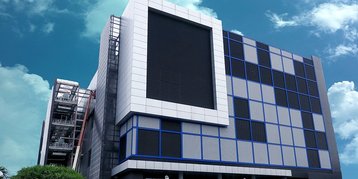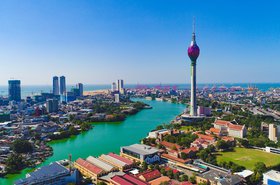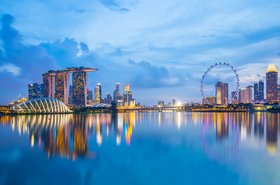Current restrictions on data center building in Singapore will deter big players and hold the nation back, a trade association has claimed.
Demand is rising fast, and Singapore has lost out on data center projects in the last three years due to a moratorium, Wong Wai Meng, chair of the SGTech association told the Straits Times this week. The Singapore government is understood to be rationing data center developments to 60MW per year, which Wing Wai Meng said was "not enough to support Singapore’s pace of digitalization."
Missing a chance?
Singapore has a “once in a lifetime” chance to become a global hub for data centers, the SGTech chair said. However, it is a small country with very low availability of renewable electricity. Back in 2014, a study found that data centers were using seven percent of the country's electricity, a figure which will have increased since then.
In 2019, Singapore's government applied a moratorium, with no new data center projects allowed. In January 2022, this was lifted, with conditions. The Minister for Communications and Information Janil Puthucheary said Singapore would be "more selective" over data center projects in future.
The government is understood to be preparing a call for data center applications this quarter, aiming to “facilitate the calibrated growth of data centers that possess the best-in-class techniques, technologies and practices for energy efficiency and decarbonization.”
The actual conditions that are being applied are being kept secret for now, though SGTech was at the closed-door meeting of government agencies and data center players in January which described them in detail. It's understood that Singapore will allow only 60MW of new capacity per year, in tranches of between 10MW and 30MW. New data centers will also have to have a power usage effectiveness (PUE) of 1.3.
That capacity won't be enough for big players like Amazon, Microsoft, Tencent, and TikTok's parent ByteDance said Wong. He reckoned that Singapore had lost a potential 200MW of new capacity in the two and half years of the moratorium, and the hyperscalers could easily use double the amount the government is offering them.
Before the moratorium, data center building in Singapore had been ramping up rapidly, with ever bigger projects landing on the island city-state. In the five years between 2010 and 2015, 12 facilities were built with a total capacity of 307MW. Between 2015 and 2020, the sector built two-and-a-half times this capacity, 768MW, in only 14 facilities on industrial state land.
That means that in the five years to 2020, an average 150MW of space was built each year, which was already 2.5 times the capacity that is now being offered by the government. With data center demand accelerating, it's very likely that demand could be several times the quota offered.
With that big a gap between its demands and the state's offer, SGTech has come back with a suggestion that the data center sector should be able to create its own green electricity grid, paying for the development of renewable energy for its facilities. No details have been provided yet about the source and capacity of such a grid.




![[Image] SKT Invests USD$200 Million in SMART Global Holdings](https://media.datacenterdynamics.com/media/images/Image_SKT_Invests_USD200_Million_i.2e16d0ba.fill-280x185.jpg)